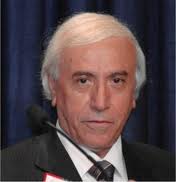By Shwan Zulal:
The rush for Kurdish oil and gas was stepped up a notch last week. More options were exercised and two hydrocarbon deal done plus there was renewed interest from Vallares. The Canadian ShaMaran Petroleum and the Australia Oil Search announced that they have exercised an option from a 2009 seismic deal and entered into a PSC (Production Sharing Contract) for the Taza block. Meanwhile, UK-based Afren announced that it has bought into two PSCs in the Kurdistan Region for $588 mlnimum, which amounts to a 60 per cent stake in Barda Rash. They acquired the interest from Komet Group and a further 20 per cent interest in Ain Sifni, which was granted by the KRG (Kurdistan Regional Government).
Hess Corporation from the US, and its Irish partner Petroceltic, announced the finalisation of two PSCs. The deal stipulates that Hess will be the operator and this will give it a 64 per cent participating interest and 80 per cent paying interest in the blocks, according to the company. The block is located north west of Erbil, the capital of the Kurdistan Region in Iraq. Furthermore, the Spanish oil and gas group Repsol has signed agreements with the KRG for the exploration of two blocks in the west of the Kurdistan Region which have been under negotiation for the past 12 month, reports Reuters.
In yet another development, it has emerged that Tony Hayward’s investments vehicle, Vallares, has been looking at DANA gas, FT reports. Dana Gas is a private sector natural gas company and it has a market cap of $1bn. DANA produces 65,000 barrels of oil equivalent per day of oil, gas and natural gas liquids. It has operations in the UAE, Egypt and the Kurdistan Region. Vallares has other potential targets in sight, including Turkish Genel Energy, an independent exploration and production company operating in the Kurdistan Region and currently one of the biggest oil producers in the Region.
While the deal-making continues in the Kurdistan Region and investors appear to have overcome their scepticism about the political situation, the Iraqi central government’s rhetoric has not abated.
The KRG managed to come to an ad hoc agreement with Baghdad in January this year, which included 19 points and lead to the resumption of oil exports and the release of payments withheld by Baghdad. Observing the current development, it appears that neither side have kept to the January agreement. The KRG has signed new oil contracts and Baghdad has not implemented its side of the bargain.
The challenge for the KRG – and the list of demands put to the Iraqi PM, Nuri Al-Maliki – has been that the demands involve complicated legislation on issues of energy, Presidency Council and other intricate matters which are likely to ferment in parliament for a long time before reaching the committees and becoming law. The consensus in Iraq has always been that, no matter what Maliki has promised or the KRG undertook, it is likely that the overall structure of the Iraqi hydrocarbon industry and future exports will be decided in the backrooms among the political elite rather than in parliament. Nevertheless, it is becoming apparent that the January agreement is a short-term rapprochement, which enables oil to flow from Kurdistan to boost Iraqi oil exports, and by no means is it a concrete deal.
Under the terms of the export deal, part of the proceeds from the KRG’s oil sales will pay for the costs of oil development incurred during the life of the contracts. The rest goes into the central government’s budget, of which 17 per cent is given back to the KRG as its share of the overall Iraqi budget.
The Iraqi government and the energy committee are at loggerheads over the future of Iraq’s oil and gas. The government wants to go ahead with a new licensing round, with or without the enactment of the new hydrocarbon law, while the committee wants to stop granting any new licences in January next year unless the law is passed.
Meanwhile the Kurdistan Region has resumed exporting oil since the January agreement. However, Kurdish ministers are becoming more frustrated with the lack political progress in Baghdad. It appears that the KRG has lost patience, because of the continual political squabbling in Baghdad, and gone ahead with granting new PSCs this week.
It is not clear if there are any more deals coming soon, but the new-found confidence among investors and the opening of both the US and UK consulates in the Region has given a boost to investors’ appetite for risk-taking in the Region. Moreover, the Hayward and Rothschilds interest in Kurdistan has drawn attention to the Region.
The Iraqi government has yet to comment on the new deals and the deputy PM for Energy, Hussein Shahristani, would most likely consider the deals ‘unconstitutional’. The bold move by the KRG in defying the central government’s authority and going ahead with the granting new PCSs, indicates a new-found confidence and could defiantly lead to a showdown between the architect of Kurdish oil deals, KRG Natural Resources minister Ashti Hawrami, and Shahristani.
This article first appeared on Kurdish Views
.jpg)



